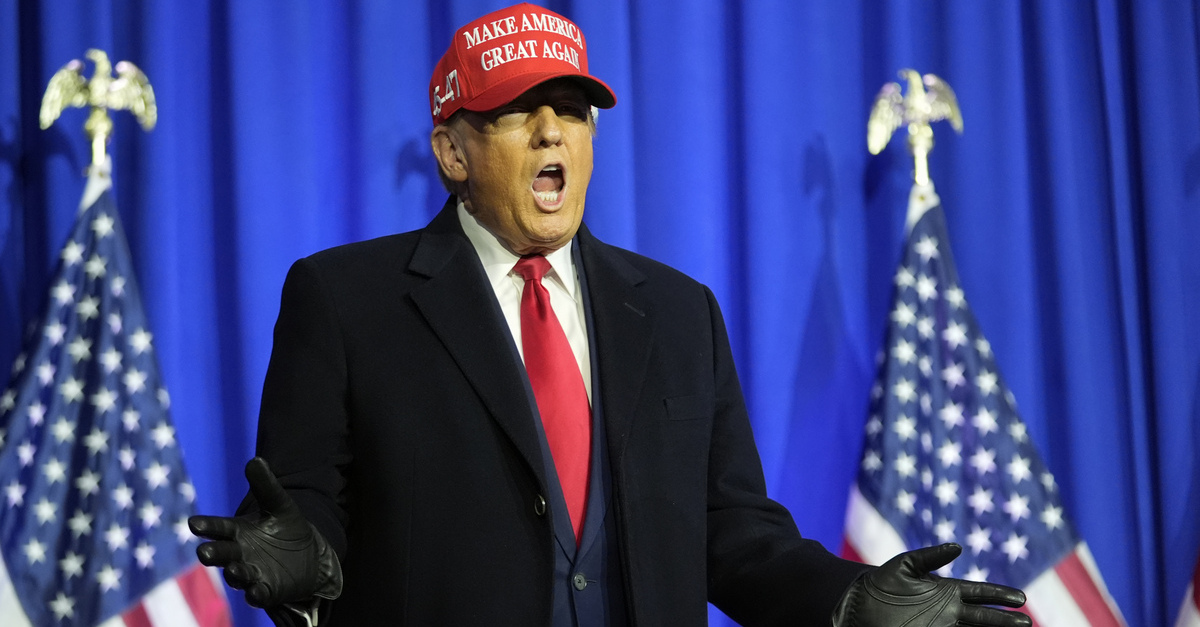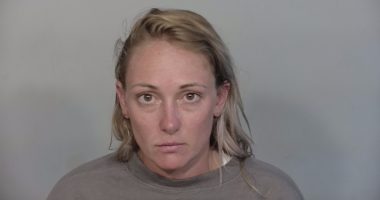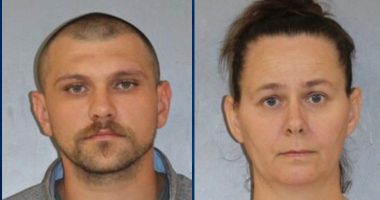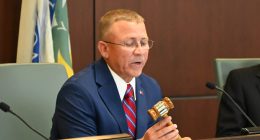
FILE — Republican presidential candidate former President Donald Trump attends a campaign rally in Waterford Township, Mich., Feb. 17, 2024. (AP Photo/Paul Sancya, File)
The New York City judge overseeing former President Donald Trump’s hush-money case rejected a last-ditch bid by the defense to adjourn the upcoming trial until after the U.S. Supreme Court rules on the “scope of the presidential immunity doctrine.”
In a six-page ruling late Wednesday, New York Supreme Court Justice Juan M. Merchan said he doubted the “sincerity and actual purpose” of the attempt to pause the start of the trial past this summer.
In deciding against the defense delay effort, the judge found that Trump had simply waited too long to claim presidential immunity.
“Defendant chose not to raise the defense of presidential immunity until well past the 45 days provided by statute,” the order reads. “He also did not raise it in his omnibus motion, in his motions in limine or in his response to the People’s motions in limine. Defendant’s decision is unjustifiable and renders this motion untimely.”
The court notes that it has discretionary power to deal with timeliness concerns in New York State, citing precedent.
“In reviewing the excuses proffered by the Defendant for the timing of his motion, this Court Finds that they are inadequate and not convincing,” Merchan writes in his increasingly blistering order.
On March 7, defense attorney Todd Blanche moved to adjourn the Empire State’s case against Trump until the U.S. Supreme Court rules on presidential immunity issues arguably implicated by Manhattan District Attorney Alvin Bragg’s recently filed pretrial motions.
Specifically, in late February, Bragg apprised the defense and the court of his office’s intent to use some of Trump’s social media posts — from when he was president — to prove the existence of a “pressure campaign” intended to dissuade potential witnesses from testifying about the alleged hush-money payments.
The defense says those late-stage acknowledgments from the state mean they could not have possibly known the case would turn on conduct that occurred while Trump was in the Oval Office. In turn, Trump’s attorneys argue that they could not have filed for a presidential immunity adjournment based on the Supreme Court’s timeline until the Supreme Court signaled it would take up the issue.
Merchan disputed the defense on several points.
The court found any such motion should have been filed long ago because, aside from the lapsed deadline under state law, Trump should have known the district attorney’s office would reference the tweets and because he was “well aware that the defense of presidential immunity, even if unsuccessful, might be available to him.”
According to the court, Trump’s prior invocation of presidential immunity in his Washington, D.C. case over the Jan. 6 riots at the U.S. Capitol — which Merchan refers to as the “Federal Insurrection Matter” — and his previous attempt to move the hush-money case to federal court by claiming presidential immunity suggest he “strategically waited” until earlier this month to raise the defense again now.
As for defense knowledge of the district attorney’s trial strategy, Merchan points out that Bragg’s office gave Trump notice of his intent to reference the alleged “pressure campaign” against would-be witnesses in a statement of facts that was included along with the original indictment and the grand jury minutes “all of which were provided to Defendant in and around April and May 2023.”
The judge also takes the opportunity to throw in some dicta about the defense’s motives for filing when they did.
“Further, and as an aside, the fact that the Defendant waited until a mere 17 days prior to the scheduled trial date of March 25, 2024, to file the motion, raises real questions about the sincerity and actual purpose of the motion,” the order continues. “After all, Defendant had already briefed the same issue in federal court and he was in possession of, and aware that, the People intended to offer the relevant evidence at trial that entire time. The circumstances, viewed as a whole, test this Court’s credulity.”
In New York, Trump faces a 34-count felony indictment over allegedly falsified business records related to payments made to adult film star Stormy Daniels in 2016. Those charges against Trump marked the first time in U.S. history that a former president faced a criminal indictment. Now, Trump is battling back against four criminal indictments in three states and the District of Columbia.
The Big Apple trial is currently slated to begin on April 15.
Have a tip we should know? [email protected]








